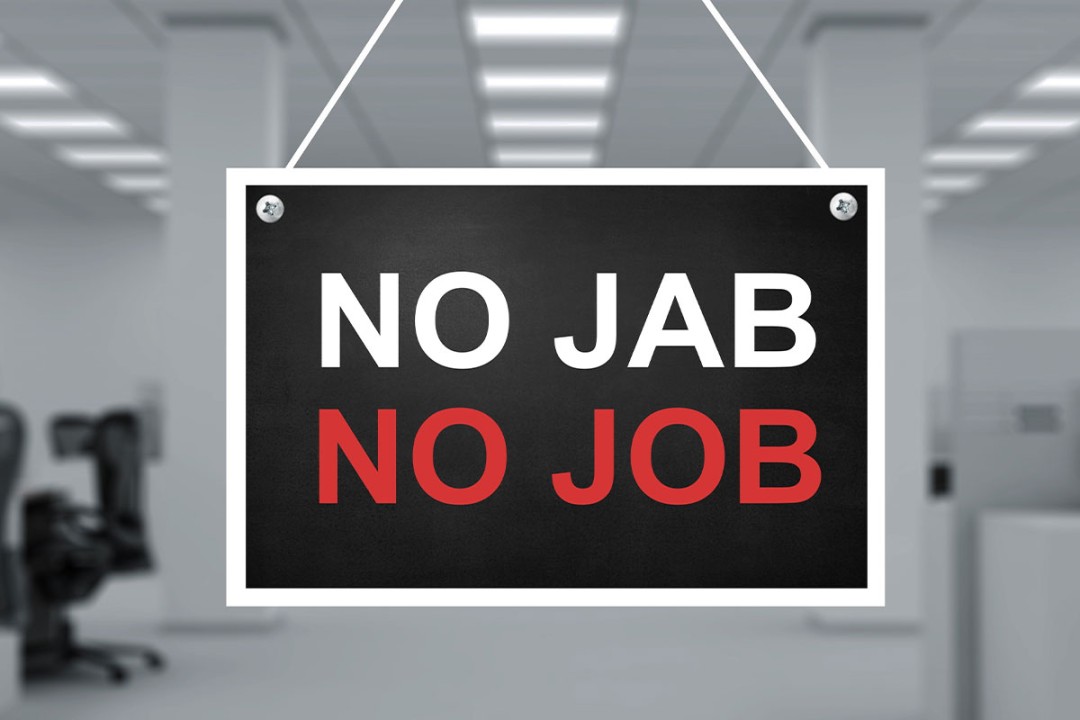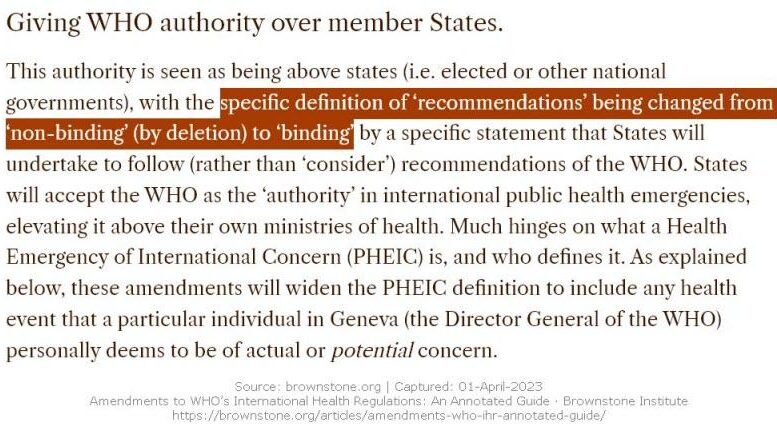Can employers mandate medical interventions?

Peter Fam, Human Rights Lawyer, Sydney, explains reasons why employers who aren’t subject to a public health order should think three times before mandating vaccination for their employees.
A few weeks ago I wrote a detailed article explaining the reasons why employers who aren’t subject to a public health order should think twice (or maybe three times) before mandating vaccination for their employees. The intention was to get it in front of as many employers as possible in the hope of changing their minds, to get it in front of as many lawyers as possible in the hope they’d investigate and take on some of these arguments, and to get it in front of employees to help them gain an idea of where they stand.
Although several employers have contacted me letting me know that the article has changed their minds and approach to the situation, LinkedIn has still done a pretty good job of artificially limiting the article’s reach. Obviously, many employers are still mandating the jab in each state (though the article is mostly relevant to NSW).
Here is a Word Document version of the article, in case you have networks you can share it with. If we can get this in front of more eyes, it might balance the debate a bit. I believe that most employers in NSW are still misinterpreting the law in this area.

Should they?
Disclaimer – this article does not contain legal advice. It contains the personal opinion of the writer only. It features general information only and is not tailored to any individual or employer’s circumstances. It should not be relied on by any individual or employer. Contrary opinions, as always, are very welcome.
The role of the employer vis-à-vis the employee is a complex one. Employees spend much of their lives working with and for employers, and employers are subject to extensive and complex duties which they must carefully administer for the sake of their employees.
Never before, however, have employers been encouraged to implement public health policy. Employers, usually beholden to Work Health and Safety laws, contracts and enterprise agreements, are being asked to consider how to fit mandatory medical procedures into this legal framework, when it’s not clear whether it fits neatly into it, if at all, and when employers themselves do not have the knowledge or expertise to answer employee questions or concerns about the medical procedures that they are directing their staff to undergo.
Over the past few months, a wave of employers in Australia have taken the plunge in directing their employees to receive Covid-19 vaccinations. If employees don’t follow this direction, they are often stood down indefinitely, or terminated. Advice about whether or not this is lawful is generally approached through the lens of whether such a direction is “lawful and reasonable”. This is a test which is assessed on a case by case basis, with reference to the common law.
The purpose of this article is to ask two questions.
First, is there more to it than that?
Second, what are the future implications of employers facilitating and accepting such a drastic shift in their role in our society?
Specifically, this article will examine:
- The popular approach to the issue of mandatory vaccination at work;
- Is it that simple? whether the law actually authorises employers to mandate medical procedures;
- What does the Common Law say?
- What questions will the Federal Court likely need to answer?;
- The cases so far, and why the matter isn’t settled; and
- Implications for the future.
1. The popular approach to the issue of mandatory vaccination at work
2. Is it that simple? Does the law actually authorise employers to mandate medical interventions?
3. What does the common law say?
4. What questions will the Federal Court need to answer?
5. The cases so far, and why the matter isn’t settled
6. Implications for the future
What we have here is the strange situation where, by jumping into the “no jab no job” sandpit, employers have potentially expanded their obligations under WHS laws considerably beyond what that statute initially intended.
Of course, apart from attempting to comply with their statutory duties, the intention of employers in mandating vaccination is an attempt to keep their staff and employees safe.
With that said, employers should know that by taking this course in the absence of Government health direction to the same effect, they are wading into very grey legal waters, and more pertinently, they are facilitating a responsibility and assumption that they will continue to play the role of health enforcer to their employees in the future. This should be taken into account by employers when considering which measures to implement as the Covid-19 situation evolves and changes, as it already has and will continue to do.
Peter Fam is a human rights consultant and advocate at Maat’s Method Pty Ltd. You can follow Peter at t.me/thepeterfamtelegram for more general content.
If you or your business is interested in professional consultation, contact peter@maatsmethod.com.au.
Can employers mandate medical interventions_.docx
(Alternatively download from Mega, )
Solutions – Legal:
- C19-Vax-Lies Chat (Epidemiologist & Toxicologist)
- Free Electricity UK [Solutions]
- How We Win | Legal & Mankind Remedy
- US Rep. Trying To Stop Edible MRNA Vaccine Research…
- You Walk In Two Realities [Max Igan]
- Australian Government tries to Statutorily Enshrine Ministry of Truth
- [Legal] Vax-Injured Class Action – Australia
- [Legal] Bioweapon evidence [May 23, 2023]
- [Canada] National Citizens Inquiry
- Michael Swimwood – Are We Presently Living In Genocide?
- [Solutions] Serene Teffaha – CoVision
- RW 7/8.) EUA Removal of Informed Consent
- [ICIC] Australian Aboriginals Fight for Survival
- Covid-19 Military Operation [Katherine Watt]
- [Senator Rennick] Health advice never mandated jabs in the workplace
- “C-19 Jabs are bioweapons” [Karen Kingston] Florida County Commissioners Presentation
- “Staying Sane” in Australian Parliament [Senator Malcolm Roberts]
- COVID-19: The Protocol That Kills
- [ICIC] Important Lawsuit which will investigate Pfizer (5 min summary)
- C19 Shots | US Senate Roundtable Highlights (Dec)
- The Director ID in Australia is Illegal
- Prof. Iain Benson (Lawyer) | Ethical problems of forced experimental drugs
- Peter Fam (lawyer) | on Human Rights re: Covid
- NZ Informed Consent document
- [Legal] U.S. Felonies with Forced or Coerced Experiments
- Dr Mark Hobart vs AHPRA
- Sean Hartman’s dad wants to know “What happened to my son?” after Pfizer shot
- How we lost Australia to Foreign Control
- Safe & Effective = Reckless & Dangerous | Julian Gillespie
- 200+ Aussie Doctors Request Health Reform (AMPS Summit 2022)
- Canadian Lawyer & Doctor on Corrupt Institutions
- Ballarat Candidates Federal Election [May 2022]
- [2022] Grand Jury – Phase 2
- [2022] Grand Jury
- [LEGAL] Coerced Vax = Illegal
- BMJ Clinical Trial Whistleblower Sues Pfizer (Brook Jackson)
- [Legal] Court Case: Separated Parents on Kids getting C19 Injections
- Catherine Austin Fitts “We are funding Genocide & Slavery”
- Australian Companies illegally backfilling risk assessments to justify jab mandates.
- Hands off our kids! [C19 Aussie School Safety Letters]
- [Legal] Dr David Martin – Paper trail as far back as 1999 leads to Current Pandemic
- Human Rights Lawyer on Fear & Division
- Brian Peckford – Last Living Architect of Canada’s Charter of Rights – Stands Up!
- Senate Hearing – Jan 24 2022 – 3 Military Whistleblowers on C19 Vaccines – “Our soldiers are being experimented on”
- United NT Businesses Stand Up against Unreasonable Mandates
- Winning Victoria Back – COVID Mandates [Interview]
- [Comedy/Truth] Pauline Hanson Explains Australian Politics
- Can employers mandate medical interventions?
- Laws against C19 Mandate [Australia] Barrister Raymond Broomhall
- USA Covid-19 Bill – Ban requiring employees to get COVID and other shots

Site Notifications/Chat:
- Telegram Post Updates @JourneyToABetterLife (channel)
- Telegram Chatroom @JourneyBetterLifeCHAT (say hi / share info)
- Gettr Post Updates @chesaus (like fakebook)
Videos:



![mRNA – most dangerous platform released on mankind ~Toxicologist [Senate Hearing]](https://pennybutler.com/wp-content/uploads/2023/09/VAERS1990-2023-AllVaccineDeaths.jpg)

![[1992] New World Order: Solution or Seduction? | Jeremy Lee](https://pennybutler.com/wp-content/uploads/2022/02/NWO-Seduction.jpg)